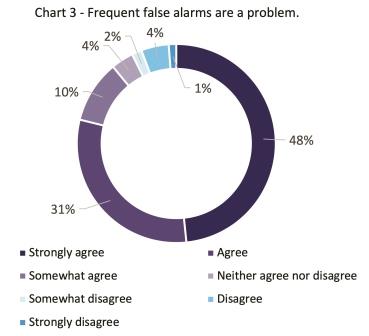The International Maritime Organization Maritime Safety Committee’s first high-level policy debate on armed guards has seen members states agree to issue guidance for private maritime security companies and to develop an international set of standards.
Both principles will now be considered in more detail by the MSC’s working groups but IMO secretary-general Koji Sekimizu said he hoped that “something tangible” would emerge regarding the guidelines at the end of the MSC’s 90th meeting next Friday.
The circulars are expected to follow a similar format to the guidance that the IMO issued to shipowners and states on the use of armed guards last year.
While the committee recommended that member states should decide their own stance towards PMSCs, Mr Sekimizu said the meeting had generally agreed that there was a need for international guidance to assist policy making.
However he said that this decision was not a recommendation or endorsement in a wider context, adding that that armed guards “should not be an alternative or replacement for best management practices”.
Mr Sekimizu said the use of PMSCs should be seen as an “exceptional measure” and should in no way become an institutionalised part of the shipping industry.
When asked whether the IMO would adopt a standard for PMSCs that was currently in use, such as that used by industry trade body the Security Association for the Maritime Industry, Mr Sekimizu said he was aware of SAMI’s standard and of the BIMCO-endorsed International Standard Organisation, but that the working group would discuss a more general standard.
To date, standards and accreditation systems for the private maritime industry are voluntary and a mandatory system has been mooted.
Asked whether an international standard could be mandatory, Mr Sekimizu said: “What is clear now is that the way forward is not industry self-regulation on a voluntary basis.”
He said called for an international regime to be established that is not mandatory, but should provide a framework for flag states that decide to allow vessels to deploy arms on board.
Mr Sekimizu said further discussion was needed over whether flag states or countries where PMSCs are registered should be responsible for administering standards and accreditation processes.
Mr Sekimizu acknowledged that rules for the use of force have been a contentious subject for the maritime security industry, creating a need to “clearly define” where the master’s responsibility ends and the PMSC team leader’s begins.
However, he said he had no immediate answer to this pressing dilemma, which warrants further discussion.
The meeting urged flag, coastal and port states to decide a national policy on armed guards and to promulgate this information to governments, the shipping industry and private maritime security providers.
Before the latest debate on armed guards, the IMO held its conference on capacity building to counter piracy off the coast of Somalia. It led to five strategic partnerships being signed, involving several UN agencies and the European Union.
On Monday, ministers, ambassadors and senior officials of states participating in the Djibouti Code of Conduct and representatives of donor states to the Djibouti Code of Conduct Trust Fund attended a ministerial meeting.
They agreed that the Djibouti Code should not be open to other states and should continue to be a non-binding code. However, the meeting agreed to review the status of the code in the next two years.
The IMO said the meeting also affirmed its agreement to be part of the combined UN efforts on the ground in Somalia, based on the Somalia Roadmap and the Transitional Federal Government’s national security and stabilisation plan.


[…] The latest news coming out of the International Maritime Organisation ( IMO ) Maritime Safety Committees that it will establish a set of global standards for armed guards. […]